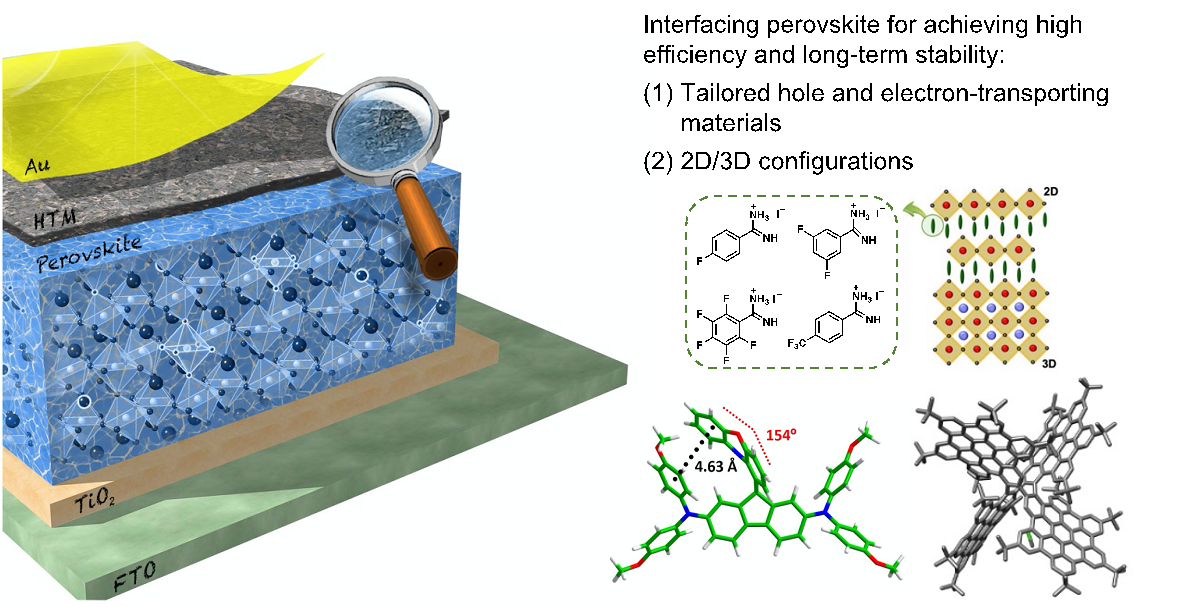RESEARCH PROGRAMMES
P1: Organic Nanosystems for light harvesting and energy conversion
RESEARCH SUPERVISOR(S)
Dr Nazario Martín León
Research Group website: https://www.nazariomartingroup.com/
RESEARCH TOPIC DESCRIPTION
The Sun is the most powerful energy source available in our Solar System. The energy that hits our planet is free, clean, renewable and practically limitless. Harvesting this energy in an efficient manner has currently become one of the most important challenges for the scientific community. Photovoltaics (PV) offers a feasible, clean and promising solution to overcome this problem, by harvesting and converting solar energy into electrical power. In the frame of a joint multidisciplinary study, recent results have shown not only a remarkable improvement in device efficiencies, but also a substantial reduction in fabrication costs.
In this context, the IDEAL postdoctoral project could afford a multidisciplinary opportunity for the design of new materials for its application in photovoltaic technologies, mainly in perovskite solar cells (PSCs). The sky-rocketed development of PSCs in the past 10 years pointed this technology as one of the most promising competitors to classical silicon devices, especially focusing on some applications where silicon devices could not be implemented, taking advantage of its flexibility and low-cost fabrication. As a consequence of the multidisciplinary frame of PSCs, the candidate should be involved in the preparation of disruptive organic materials, but also in the implementation of them efficiently in solar devices. Taking advantage of the variety of organic structures that our research group have prepared during the last years, mainly focused on carbon-nanostructures (carbon nanotubes, graphene and molecular nanographenes) and small organic molecules, the goal of the project pursue the modification of the structural and compositional engineering for a better control of 2D and/or 3D perovskites due to the preparation of hole transporting materials (HTMs) and electron transporting materials (ETMs). Improving the long-term stability and flexibility is essential in order to address the further commercialization step of PSCs, thus contributing to solve the current energy problem by complementing the existing photovoltaic technologies.
POSITION DESCRIPTION
The candidate should have a great initiative and show interest to work in a multidisciplinary research that involved the developing new disruptive materials but also the fabrication of solar devices to contribute from research to solving the current energy problem. It is mandatory to have a scientific and academic training in chemistry, physics or engineering, and good communication skills.
The candidate should provide a complete background in the field of photovoltaics, mainly in the fabrication of perovskite solar cells and its characterization, including a PhD or postdoctoral research in this field (publications in indexed journals). If the candidate has additional skills in characterization techniques such as SEM/AFM training, photoluminescence, hole-mobility or XRD is recommended.
As a postdoctoral researcher, the candidate will have the opportunity to fabricate its own perovskite solar cells for incorporating new organic materials that will be provided by our own group. Showing the knowledge of preparing different cell architectures in order to implement both hole and electron transporting materials and more complex structures such as 2D/3D perovskite structure is essential. Apart from the work carried out in IMDEA Nanoscience, the collaboration with international outstanding groups will give the opportunity to perform additional device characterization.
PARTNER ORGANIZATIONS
The development of the project requires productive research collaboration with outstanding research groups in Europe such as Prof. M. Grätzel at École Polytechnique Fédérale de Lausanne (Switzerland), Prof. M. Reddy at Lille University (France), Prof. E. Ortí at Valencia University and other groups at IMDEA Nanoscience such as Dr. E. Cánovas. Any of the research groups with which we collaborate would be a good choice for an international secondment and research-oriented training opportunities. Furthermore, the group actively collaborate with SAULE Technologies that can be an extremely good opportunity for the candidate to have the first contact with a high-tech company.

